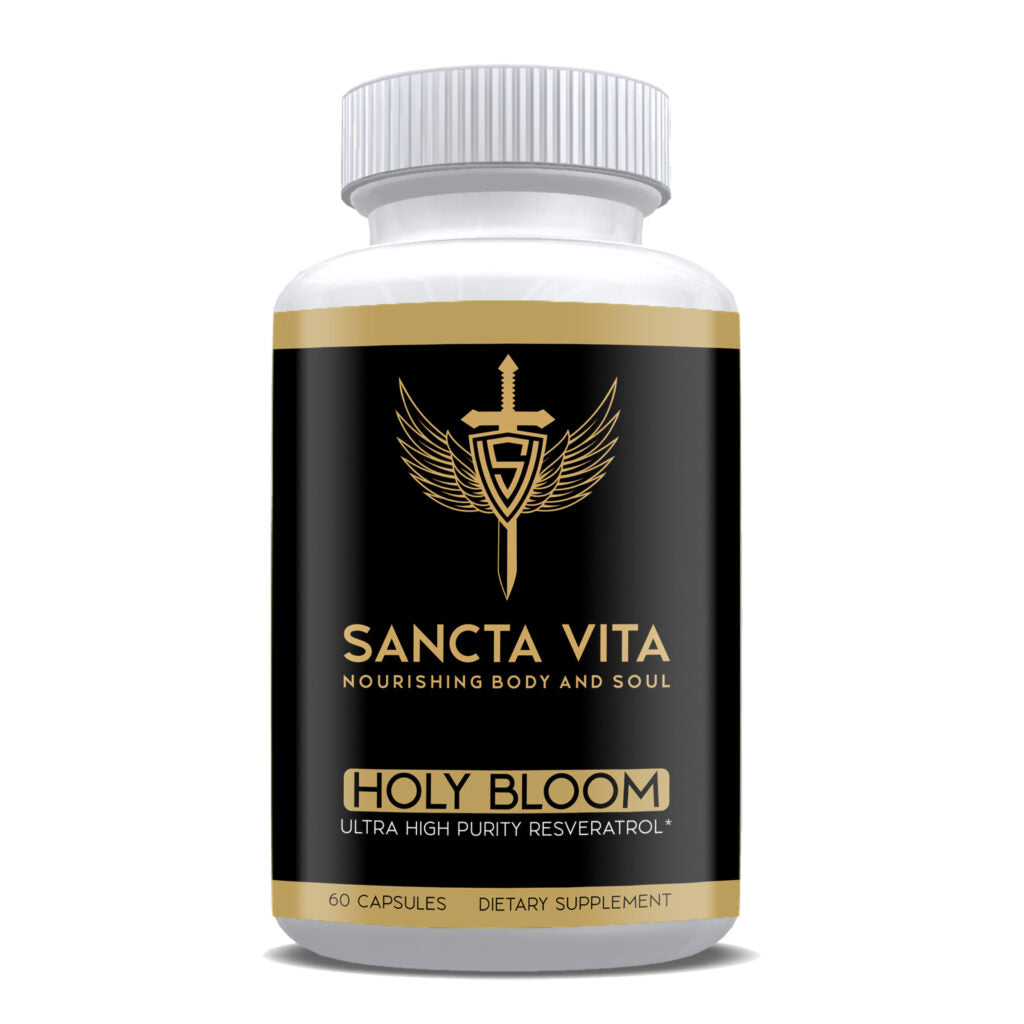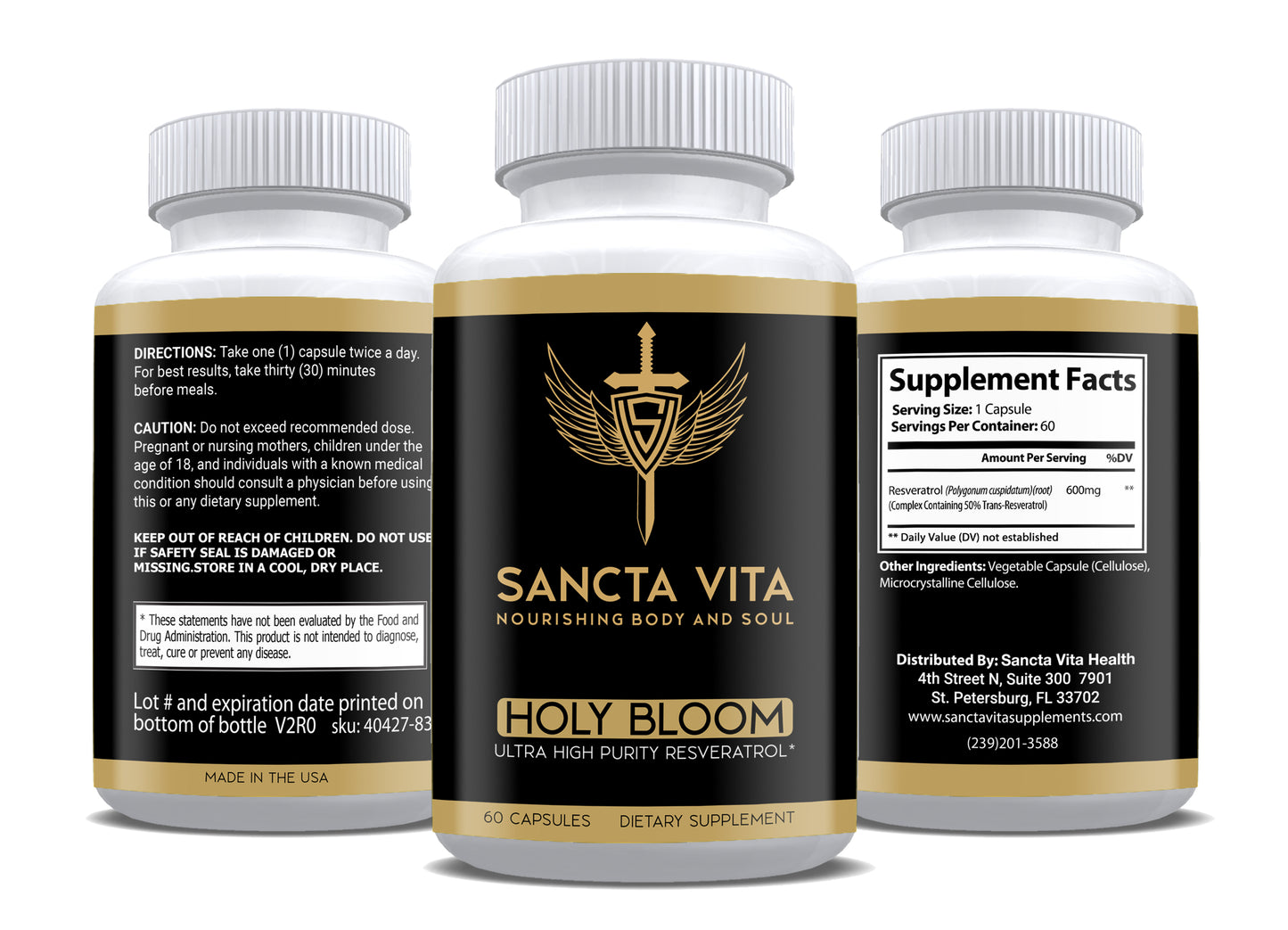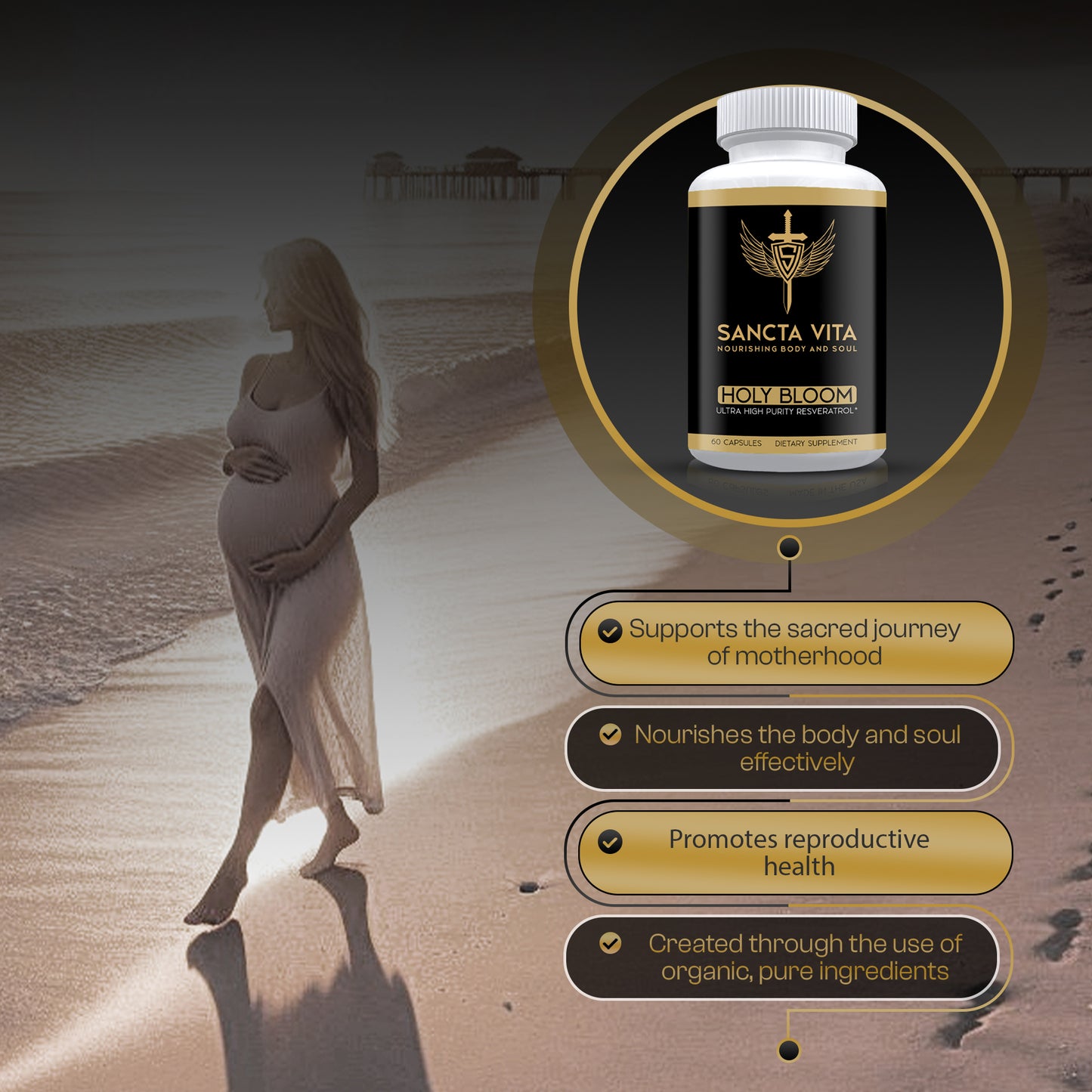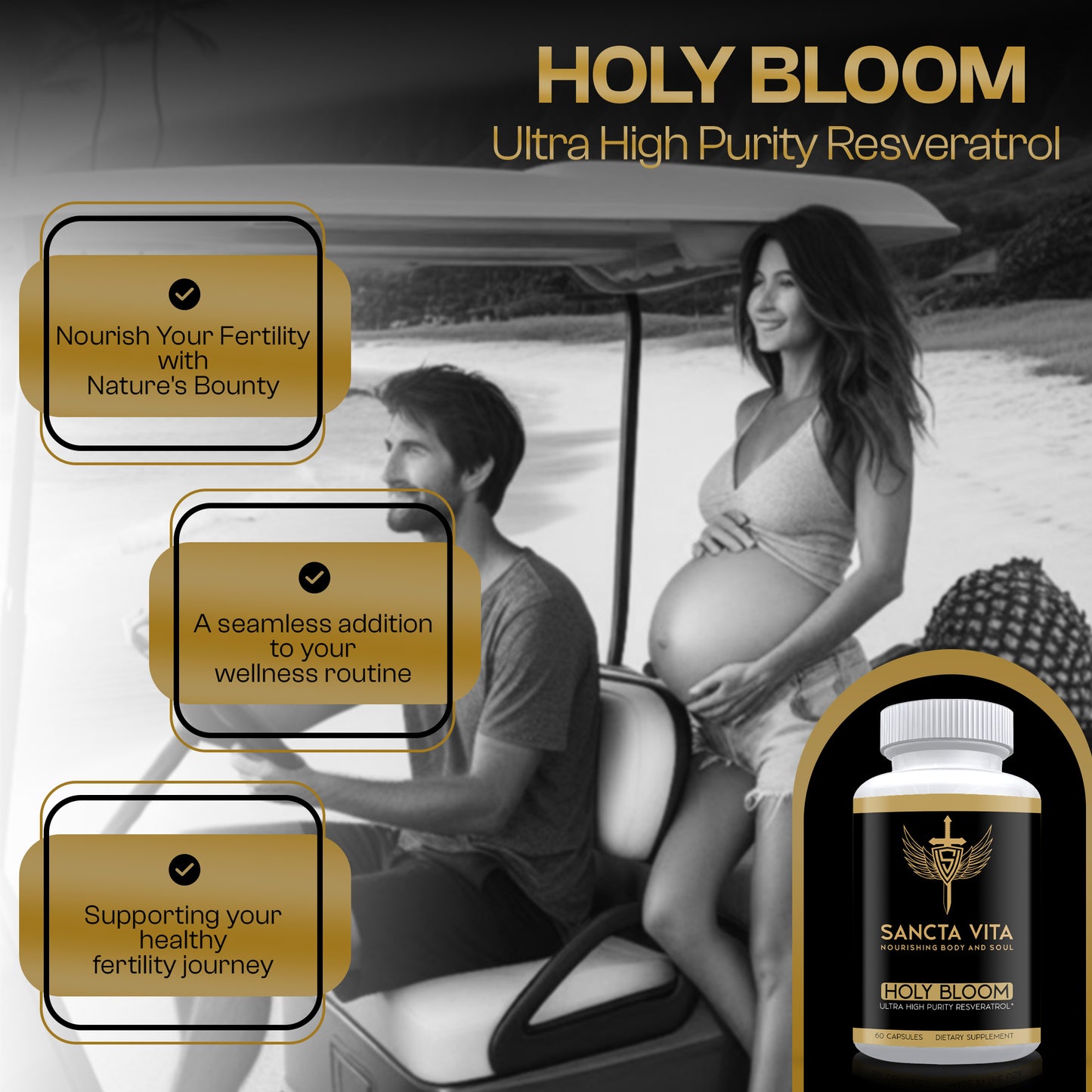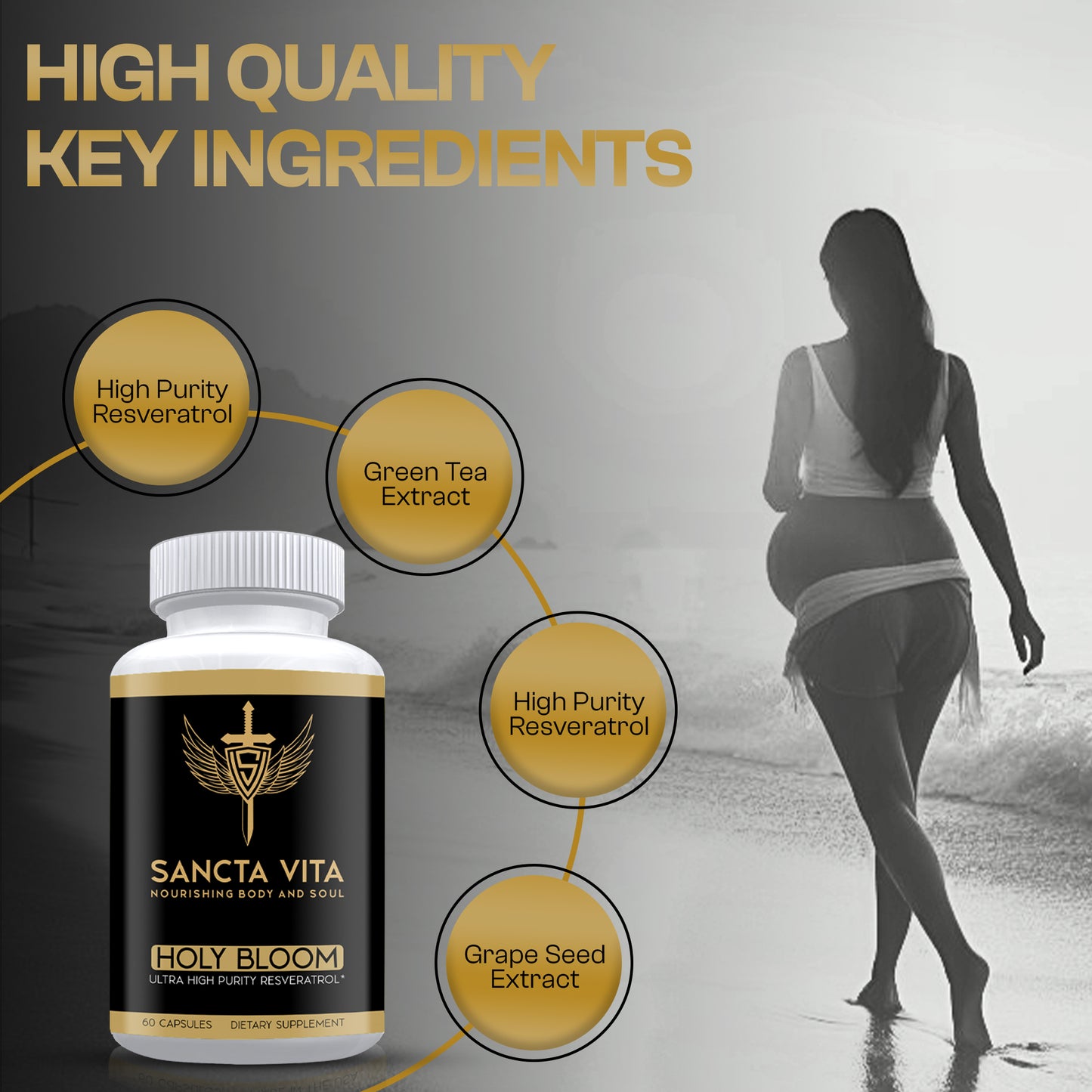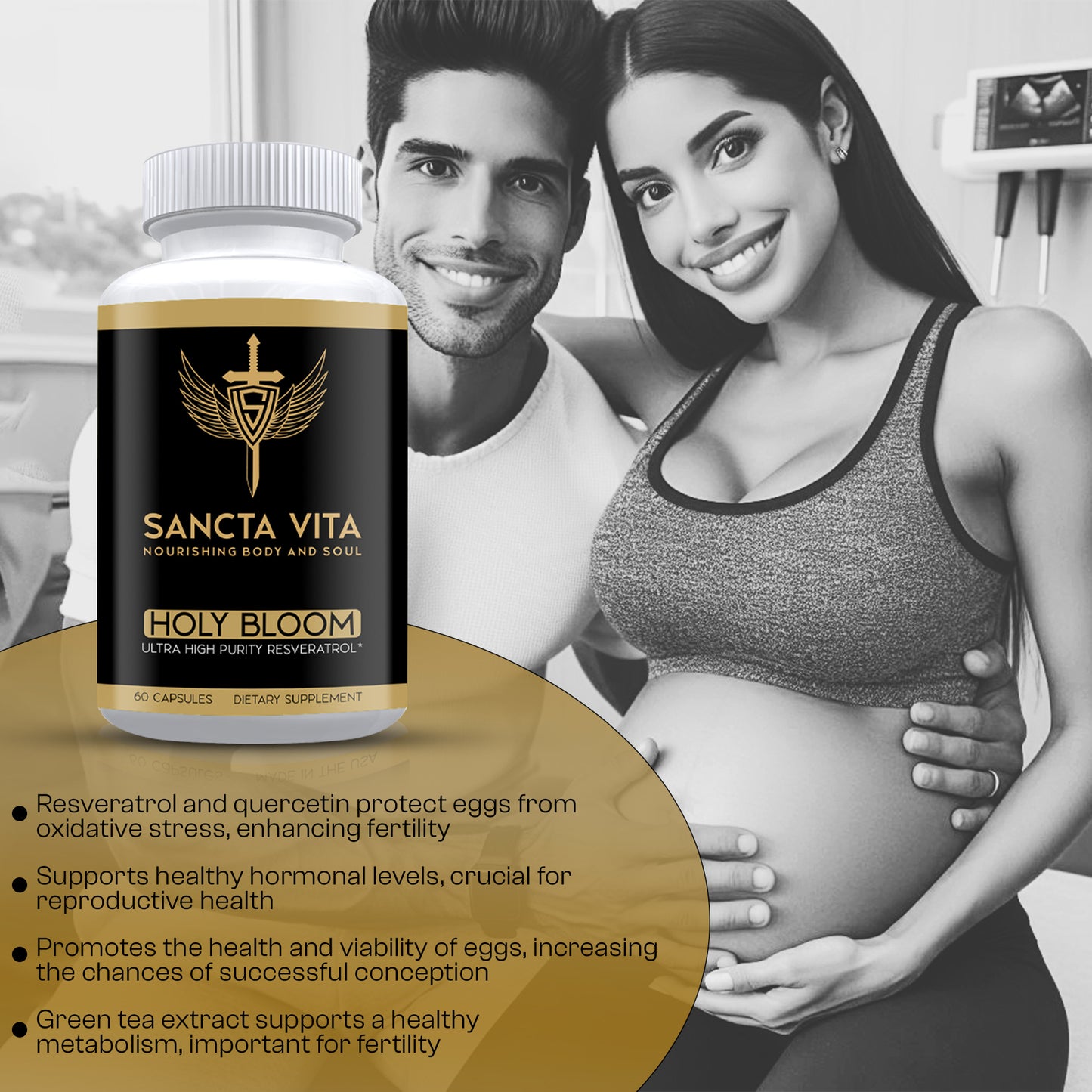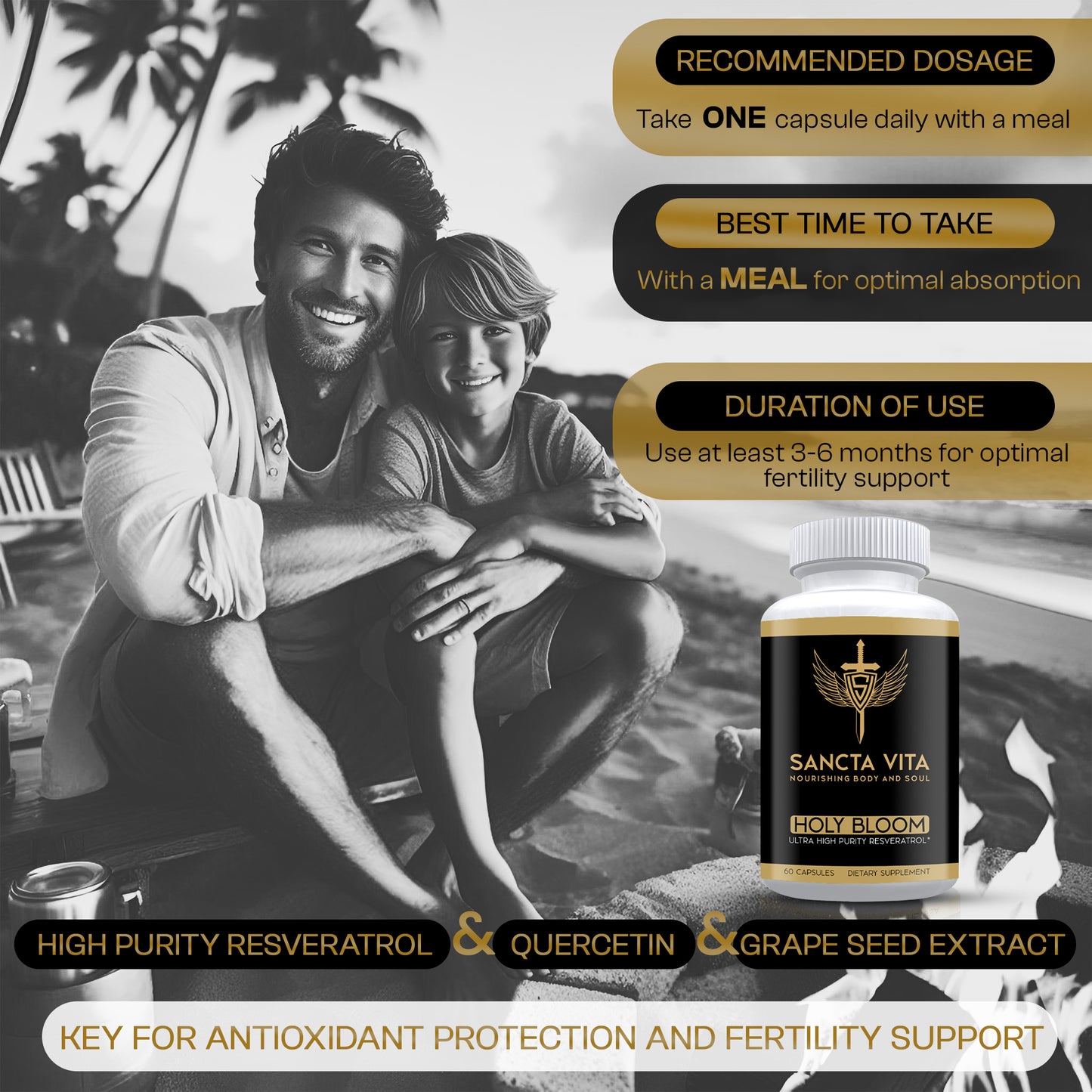
Resveratrol and Fertility: Boost Reproductive Health Naturally
Share
Resveratrol, a powerful antioxidant found in red wine and berries, is emerging as a promising natural aid for reproductive health. Recent studies on resveratrol and fertility reveal its potential to enhance egg quality, improve sperm function, and address hormonal imbalances, offering new hope for couples struggling with infertility.
Key Takeaways:
- Resveratrol combats oxidative stress, a major factor in up to 30% of female infertility cases
- Studies show resveratrol can improve egg and sperm quality in both animal and human trials
- Resveratrol may help regulate hormonal balance, particularly beneficial for women with PCOS
- Typical supplementation ranges from 150-500 mg daily, but professional guidance is crucial
- While promising, more large-scale human trials are needed to fully understand resveratrol's fertility benefits
Unleashing the Power of Resveratrol for Fertility
Resveratrol, a plant-derived polyphenol found in red wine, grapes, berries, and other natural sources, has captured the attention of fertility researchers and hopeful parents-to-be alike. This powerful compound boasts impressive antioxidant and anti-inflammatory properties, making it a promising candidate for improving reproductive health.
While early research indicates encouraging results, it's important to note that more extensive human trials are needed to fully understand resveratrol's impact on fertility. However, the potential is undeniable, especially considering that oxidative stress contributes to 25–30% of infertility cases in women. This supplement's antioxidant properties could play a crucial role in addressing this issue.

Resveratrol's Impact on Female Fertility
Resveratrol's effects on female fertility are multifaceted and promising. By combating oxidative stress in ovarian cells, this compound helps protect and improve egg quality. A study on mice demonstrated that resveratrol maintained a larger follicle pool and shielded oocytes from damage, suggesting its potential to preserve fertility.
Human studies have also shown encouraging results. Women undergoing ICSI (Intracytoplasmic Sperm Injection) who took resveratrol supplements experienced improved fertility outcomes. Additionally, resveratrol has shown potential in regulating estrogen levels and reducing hormonal imbalances, making it particularly beneficial for women with PCOS (Polycystic Ovary Syndrome).
Resveratrol and Male Reproductive Health
The benefits of resveratrol extend to male fertility as well. This powerful antioxidant has been shown to reduce DNA fragmentation in sperm and improve both motility and morphology. Animal studies suggest that resveratrol can enhance testicular function and overall sperm quality.
When compared to other fertility supplements for men, such as CoQ10 or zinc, resveratrol holds its own as a natural fertility enhancer. Its unique ability to address multiple aspects of sperm health makes it a valuable addition to male fertility regimens.
Incorporating Resveratrol into Your Fertility Journey
For those looking to harness the potential benefits of resveratrol, there are several ways to incorporate it into your diet. Resveratrol-rich foods include:
- Red grapes
- Blueberries
- Peanuts
- Red wine (in moderation)
For those considering supplementation, typical dosages range from 150–500 mg per day. However, it's crucial to consult with a healthcare provider before starting any new supplement regimen, especially when trying to conceive.
While resveratrol shows promise, it's important to be aware of potential risks and limitations. Some groups, such as pregnant women, should avoid resveratrol supplements. Additionally, the lack of large-scale human trials means we're still learning about its full effects on fertility.
Interestingly, resveratrol may also impact IVF outcomes. A study involving 966 patients over 40 years old found that resveratrol significantly improved the good quality embryo rate, offering hope for those undergoing assisted reproductive technologies.
For those interested in exploring high-quality resveratrol supplements, it's essential to choose a reputable source to ensure purity and efficacy.
Frequently Asked Questions
Q: What is resveratrol, and how does it affect fertility?
A: Resveratrol is a natural antioxidant shown to improve egg quality and sperm health by reducing oxidative stress.
Q: Can resveratrol help with PCOS-related infertility?
A: Emerging studies suggest it may help regulate insulin and reduce inflammation in women with PCOS, leading to improved fertility.
Q: Is resveratrol safe during pregnancy?
A: While resveratrol offers fertility benefits, its safety during pregnancy is not well-studied. Always consult your doctor.
Q: How much resveratrol should I take to improve fertility?
A: Typical doses range from 150–500 mg/day, but consult a professional for personalized recommendations.
Q: Can resveratrol improve IVF outcomes?
A: Early evidence suggests that women undergoing IVF could benefit from resveratrol due to better embryo quality and uterine environment. A study involving 966 patients over 40 years old found that resveratrol significantly improved the good quality embryo rate.
References
1. Gerli S, et al. Nutrients. 2021;13(23):12792. https://www.mdpi.com/2072-6643/13/12/4215
2. White Lotus Clinic [Internet]. 2014 [cited 2024]. https://www.whitelotusclinic.ca/resveratrol-fertility/
3. EndoNews.com [Internet]. 2020 [cited 2024]. https://www.endonews.com/resveratrol-for-infertility-a-frenemy/
4. Dr. Aimee [Internet]. 2024 [cited 2024]. https://www.draimee.org/resveratrol-protects-against-age-associated-infertility/
5. Kim H, et al. Human Reproduction. 2023;38(Supplement_1):dead093.551. https://academic.oup.com/humrep/article/38/Supplement_1/dead093.551/7254794
Sources:


